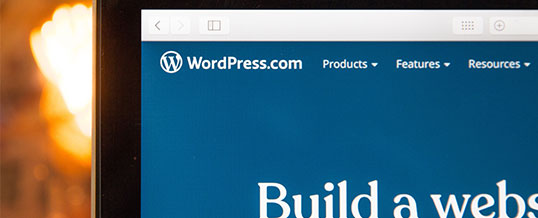
Security in WordPress is something to be taken very seriously. WordPress is the most sought after Content Management System, and popular large well-known platforms security are frequently attempted as a challenge to hackers.
The security of WordPress websites is at stake due to the ecosystem and framework of your site. The themes and plugins installed on your site make them prone to malicious attacks from spammers and hackers. It is imperative to guard your site because malware attacks can disrupt your site, taint your reputation, and chase prospective customers away.
Malware or malicious software is a computer code designed to disrupt, disable, or take control of your computer system. It comes in many forms, usually in another file or disguised as a harmless app. It works by taking advantage of technical, hardware, or software flaws in your system.
Malware comes in many forms:
Attackers can employ a set of software tools called Rootkits to get control of your system.
With a Cryptocurrency miner, an attacker can take over your computer to generate cryptocurrency such as bitcoin. If you willingly install a botnet, your computer can become a part of a network of infected systems. They are then used to send spam and launch large scale attacks.
To activate, most malware requires a key ingredient- people. Attackers must find ways into tricking people to run a malicious file, opening an infected file, or clicking an unsafe weblink. That is why stopping malware starts with people. People or webmasters have to formulate a security strategy to safeguard their websites from security threats effectively.

In this blog Karma Technologies, a Hong Kong-based website design company will share some handy WordPress Security Tips:
Hackers usually look for easy targets to hack sites. They find it easy to hack a website that generally works in a standard way. If you bring about multiple changes to your site’s normal functioning, hackers will find it cumbersome to gain access and will stay at bay. Some aspects of layered protection approach are:
A hacker must modify some files at the backend of your site if he intends to install malware. An infallible security strategy will alert you via an email as soon as someone tries to tamper any of your files.
Sites that are abandoned or left idle for an extended period are soft targets for hackers. They can make significant modifications and can install malware on such websites with great ease. Certain security plugins can make your site inaccessible for specific hours during the day if you are not making changes to your site at all times. This will prevent hackers from sneaking in an attempt to modify your website.
When a bot scans your website for vulnerabilities, it will generate a lot of 404 errors. You can set a limited number of attempts, after which you can lock the IP address. All this can be accomplished with the aid of quality anti-malware protection.
When a hacker attempts to login and gain access to your site, he may fail several times. Install a brute force protection plugin on your WordPress site and limit the number of login attempts for all users.
Always ensure that your password is hard to guess. An easy thing to remember is that your password is complex, lengthy, and unique. But even then, coming up with a complex password isn’t enough. Passwords that are hard for humans are usually easy for computers to guess. Therefore we strongly recommend a password management tool.
Also abbreviated as 2FA, the essence of two-factor authentication is precisely as implied in its name -two forms of authentication. It is not enough to enter your username and password, but you also have to enter a code, usually generated by an app by your phone. Google authenticator and Authy are the two apps used for this purpose.
The most important thing to do is to make sure that everything on your site is updated to the latest version. Your WordPress core installation, themes, plugins should be kept updated daily. This will help reduce security risks tremendously.
A recent study shows that a considerable percentage of all website hacks came from outdated versions of themes and plugins. So make sure to update your website with new and improved versions.
Another way to prevent hackers from entering your site is to use a secure connection. The question is, how?
Well, you should make sure that your site uses HTTPS instead of HTTP. When you type the new URL in the search bar, the browser tries to connect with it. With an HTTP connection, this is all done in plain text, and there is no encryption. So every time you log in to a site via an HTTP connection, the data you enter, such as your username and password, is transmitted in vital information plain text, which is terrible!
HTTPS secures this process. It transmits the username and password in an encrypted format between the browser and the site. Therefore HTTPS makes sure that no one else can intercept the data.
Make sure that your website is hosted by a hosting company that cares about your website’s security.
Check if your hosting company helps you with the following services:
It is essential to create regular backups of your site. Then in the unfortunate event that your website gets hacked, you will at least have the data, so you can quickly restore your site.
The offensive capabilities of malware have categorized it as a weapon in the murky world of cyber warfare. The underlying truth is that there are no set of agreements or rules that define who can and who cannot be targeted by the weapons of cyber warfare.
Karma Technologies is a leading web design company in Hong Kong and has martialled the threats of cyber warfare for all its clients. The cybersecurity practices laid down by us will go a long way in protecting your systems and falling victim to cyber-attacks. We are keen to help you in your quest to know more about the subject.
Input your search keywords and press Enter.